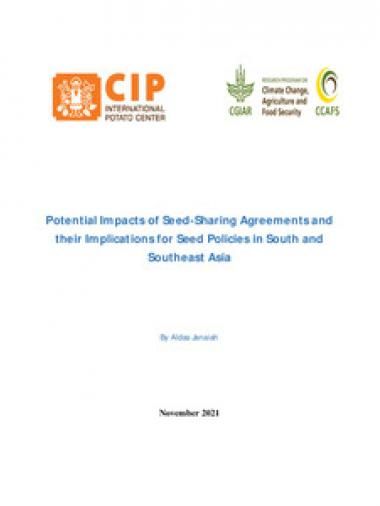Potential Impacts of Seed-Sharing Agreements and their Implications for Seed Policies in South and Southeast Asia

The establishment of CGIAR-centres in the 1960s led to inter-country movement of crop germplasm through international research networks. Subsequently, multi-lateral agreements and agencies such as SAARC, ASEAN, etc. have also facilitated sharing of knowledge and research material among member-countries in the 1970s and 80s. Many less developed countries in South and South-East Asia were substantially benefited in the 1960s, 70s and 80s from free access of improved crop varieties and elite germplasm through these international and multi-lateral networks and agreements. For instance, the IRRI’s first high yielding variety, IR-8 of rice and CIMMYT’s first wheat varieties of Kalyana Sona and Sonalika have brought revolutionary progress in in Asia. In subsequent years, many countries in Asia have freely accessed large number of improved germplasms of other country-origin and used for further breeding programs. Nearly one-thirds of India’s rice varieties that were released until 2000, and half of the total released rice varieties by 2017 have genes of rice germplasm received from IRRI or other countries. Similarly, above 90 percent of Nepal’s rice varieties were developed using germplasm of other countries. Further large number of widely grown rice varieties in Bangladesh, Nepal, Pakistan and Myanmar have been introduced from India through informal channels such as cross-border exchange of seeds, marketing of seeds by private companies, etc. However, it may be noted that access to new crop varieties and their release for farmers by any country is formally allowed only from CGIAR system. Further improved germplasm of crops from other countries received through CGIAR’s networks are extensively utilized in many countries in its breeding program for development of new crop varieties.
Citation
Janaiah A. 2021. Potential Impacts of Seed-Sharing Agreements and their Implications for Seed Policies in South and Southeast Asia. CCAFS Report. Wageningen, the Nerherlands: CGIAR Reseach Program on Climate Change, Agriculture and Food Security (CCAFS).